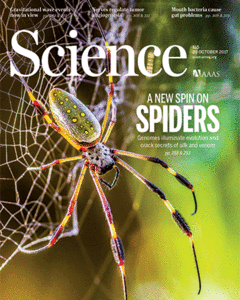
Title: Plasma contributes to the antimicrobial activity of whole blood against Mycobacterium tuberculosis
What Caught Our Attention: A big peer review (and perhaps academic mentorship) fail. These researchers used the wrong anticoagulant for their blood samples, leading them to believe that certain blood components were fighting microbes. The authors counted the number of colonies to show how well or poorly Tuberculin mycobacteria were growing in cultures — but blood samples need anticoagulants to prevent clots before analysis, and they used an anticoagulant that actually prevented the microbes from colonizing. The authors (and reviewers) should have known this from Continue reading Caught Our Notice: Dear peer reviewer, please read the methods section. Sincerely, everyone
 Here’s a head-scratcher: A 2017 paper examining why long space flights can cause eye damage has been taken down, with a brief note saying NASA, which sponsored the research, asked for the retraction because of “security concerns.”
Here’s a head-scratcher: A 2017 paper examining why long space flights can cause eye damage has been taken down, with a brief note saying NASA, which sponsored the research, asked for the retraction because of “security concerns.” Science
Science
